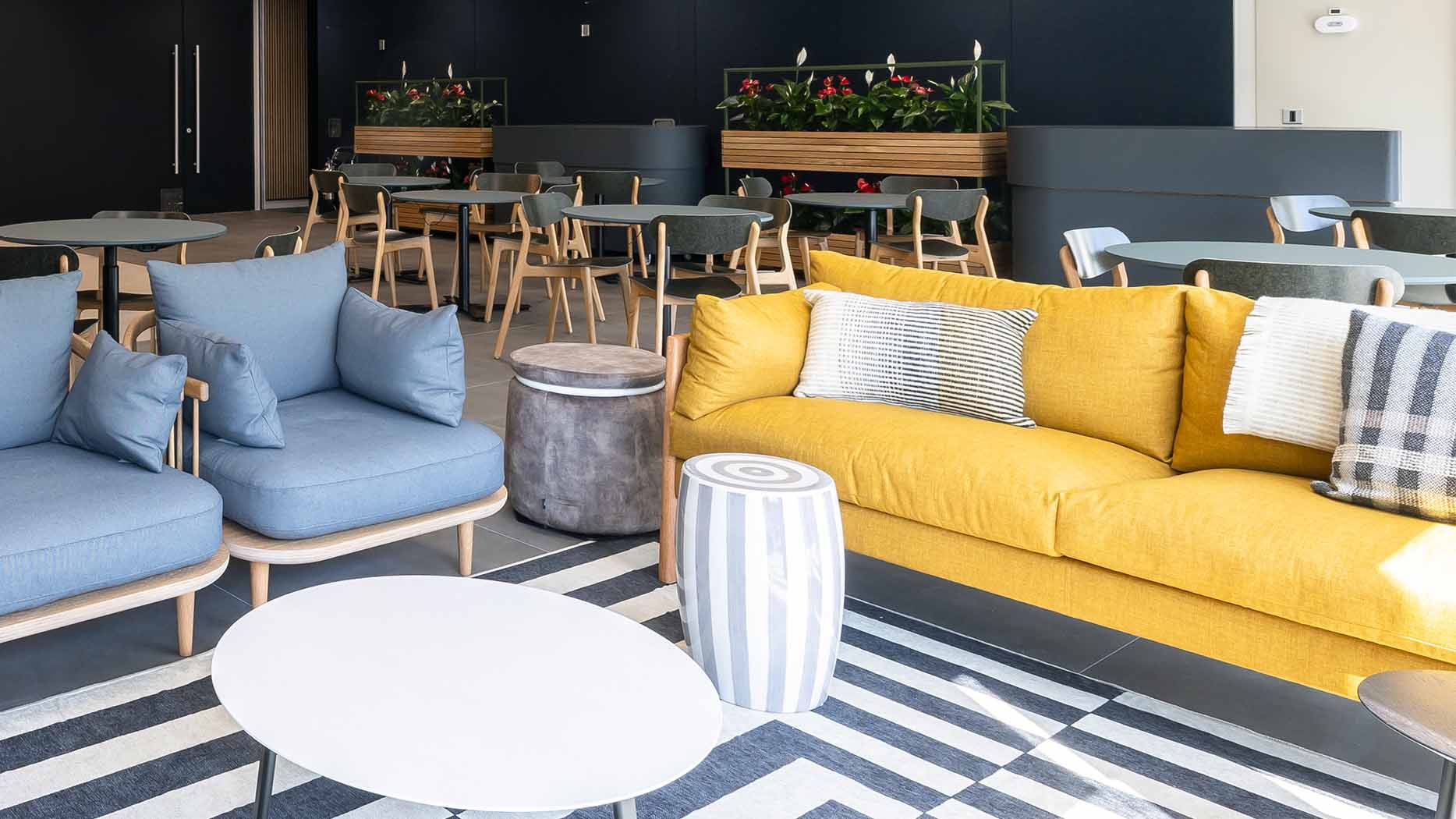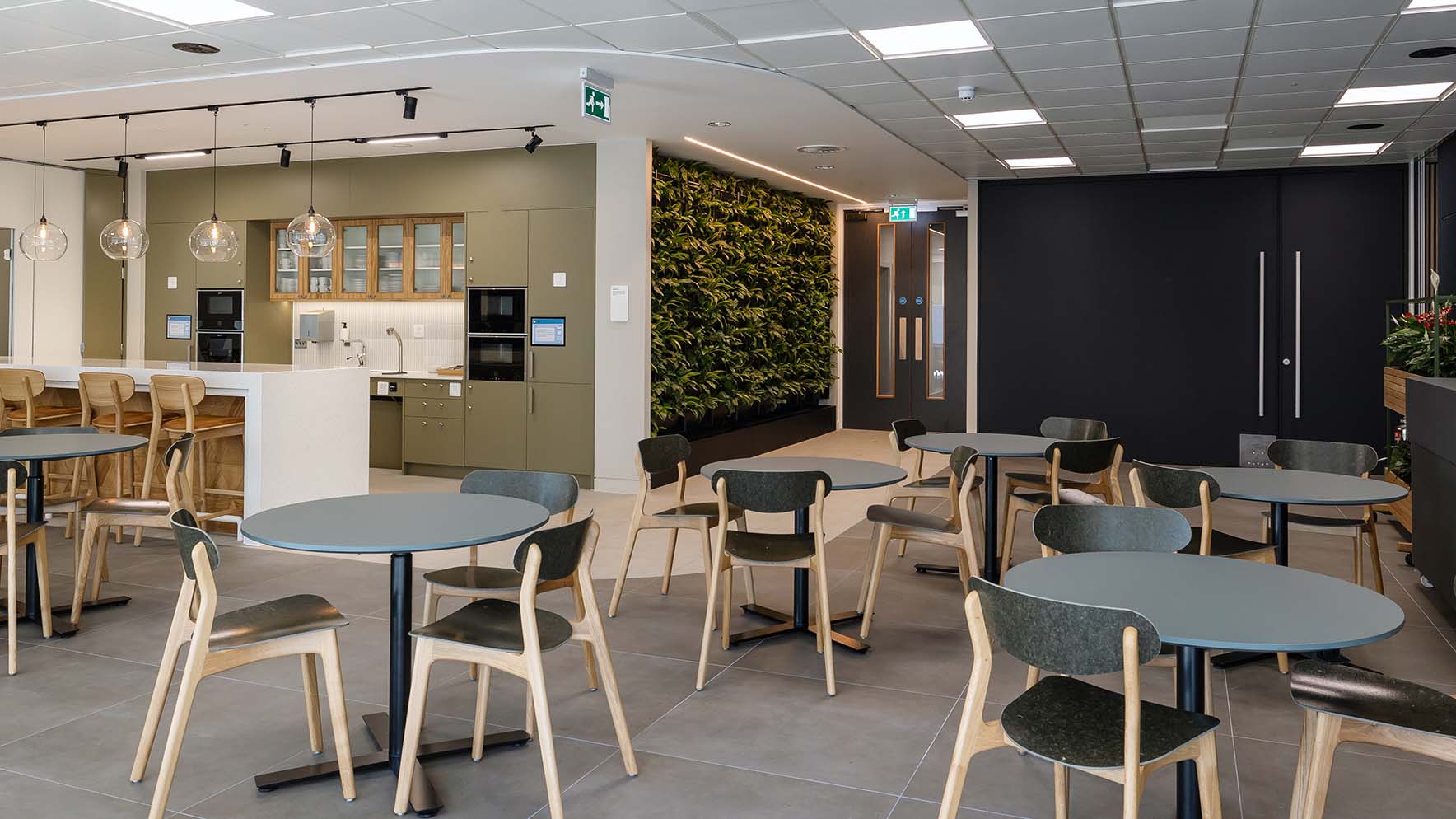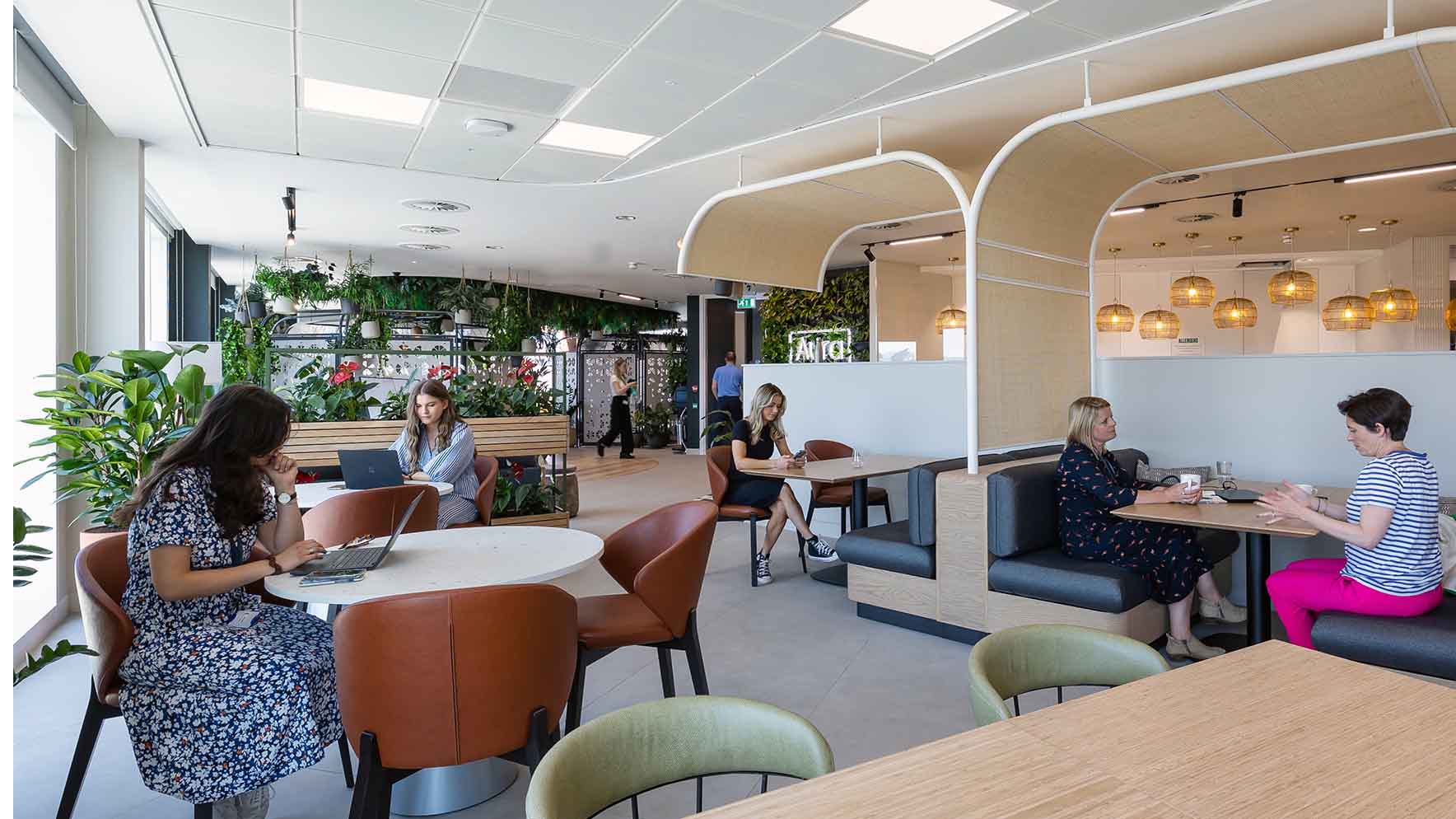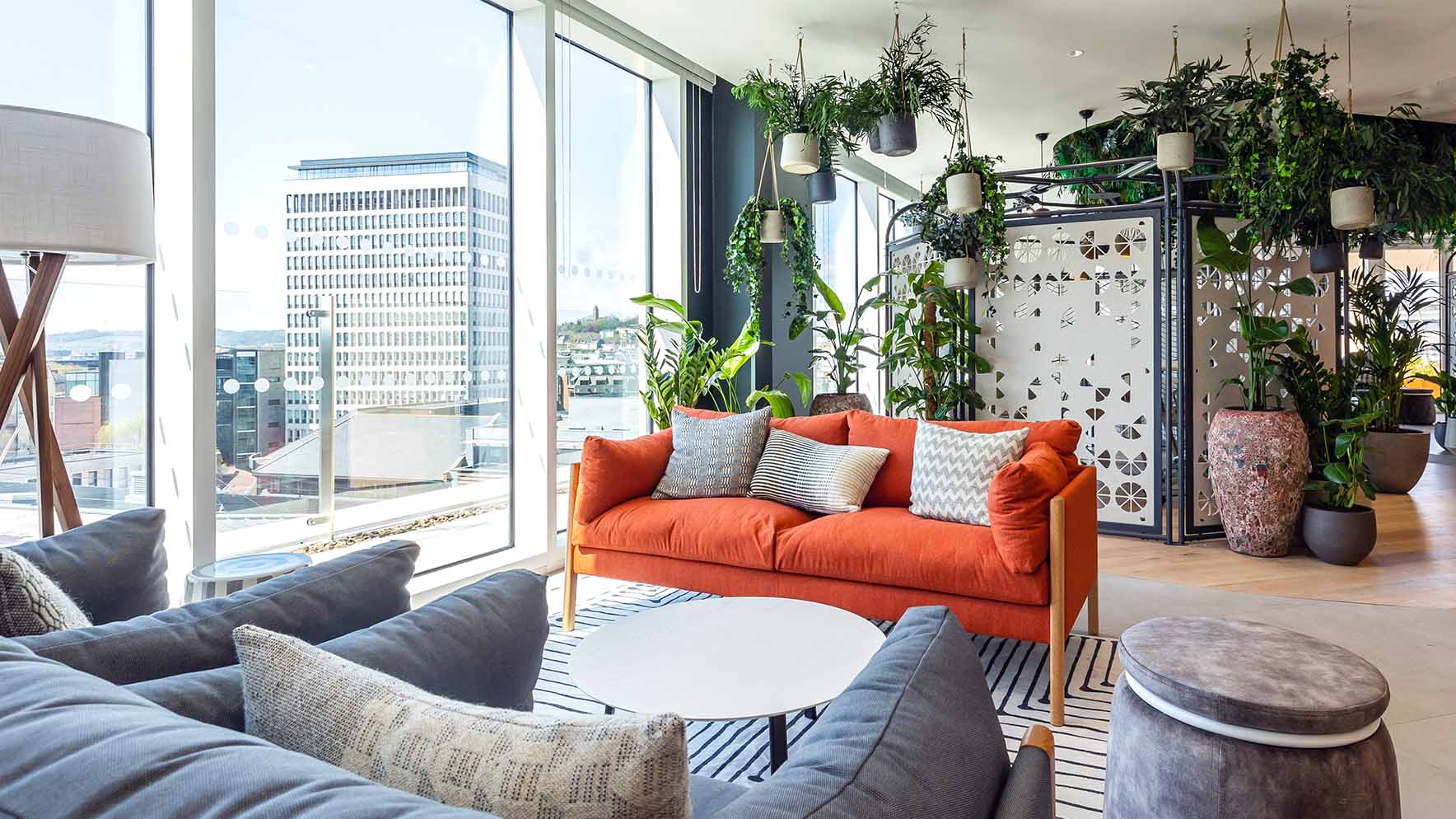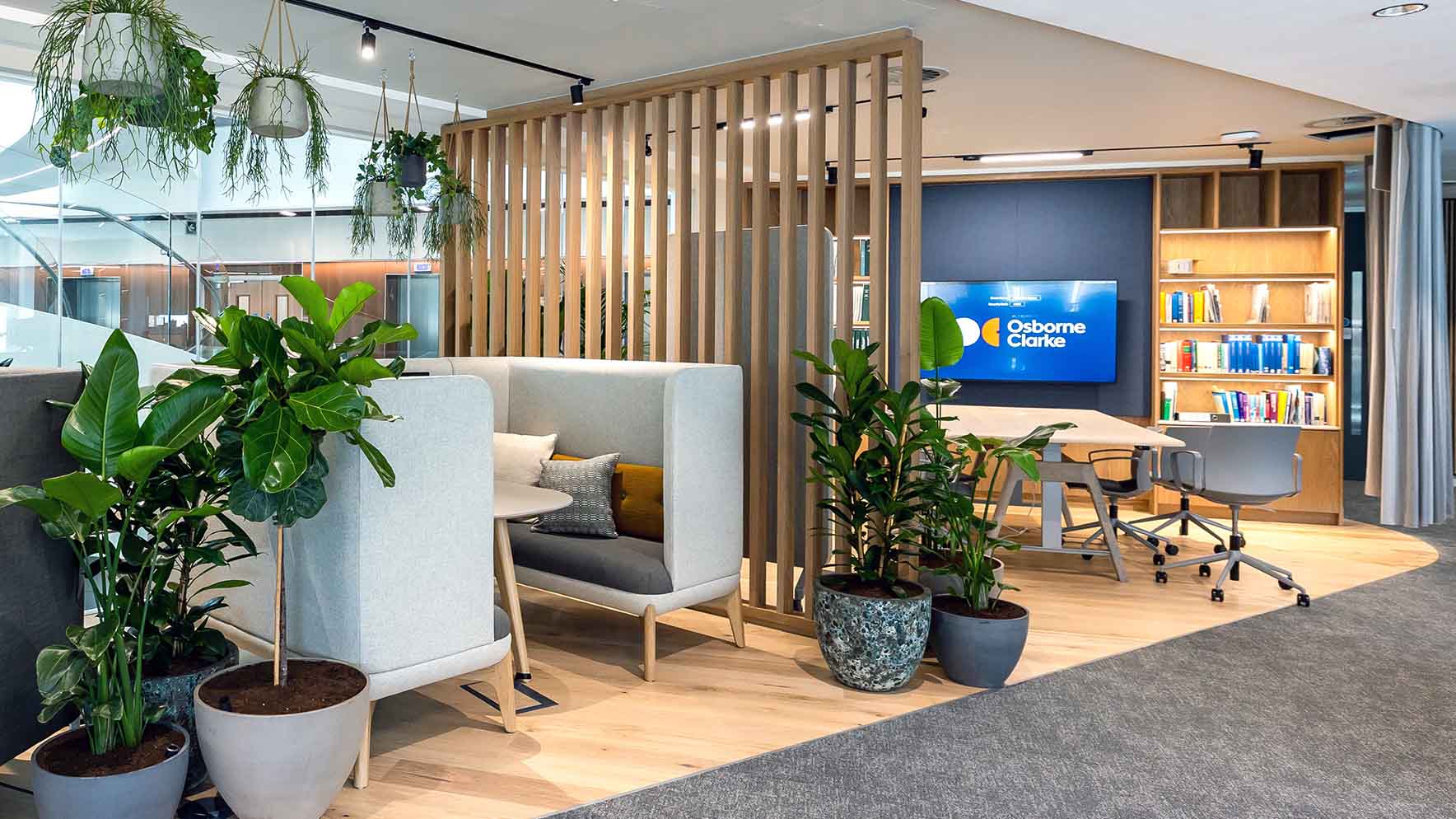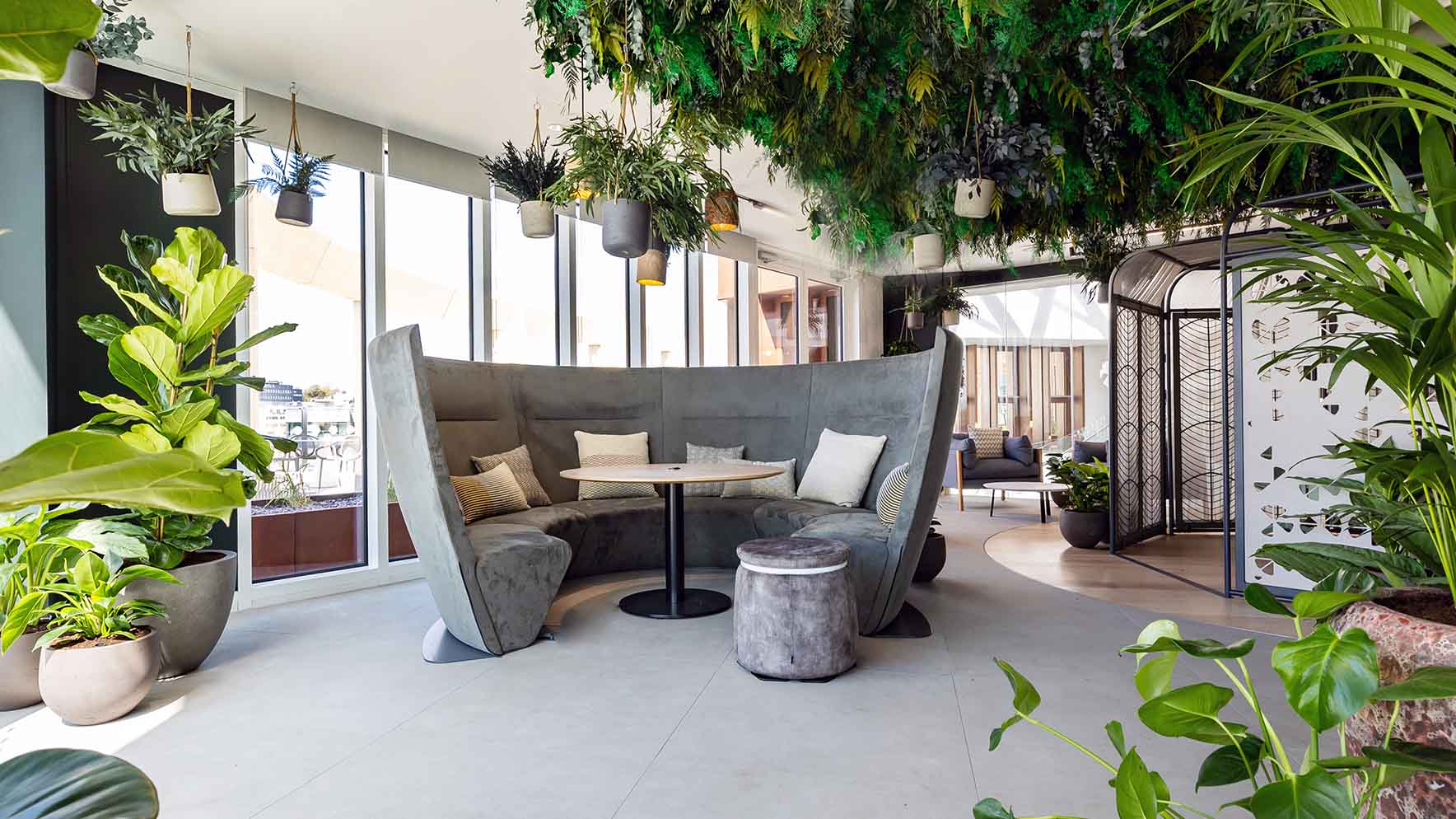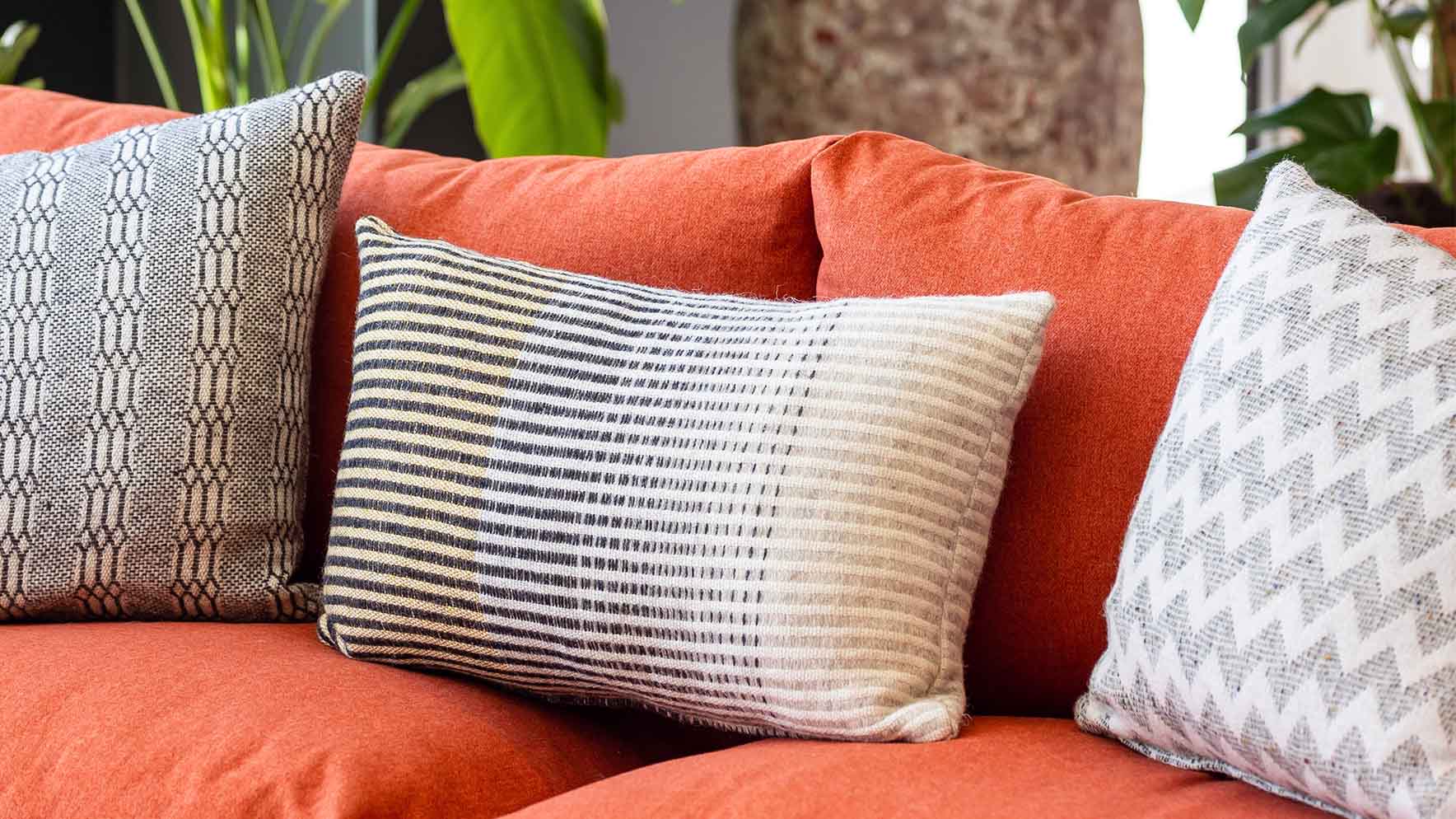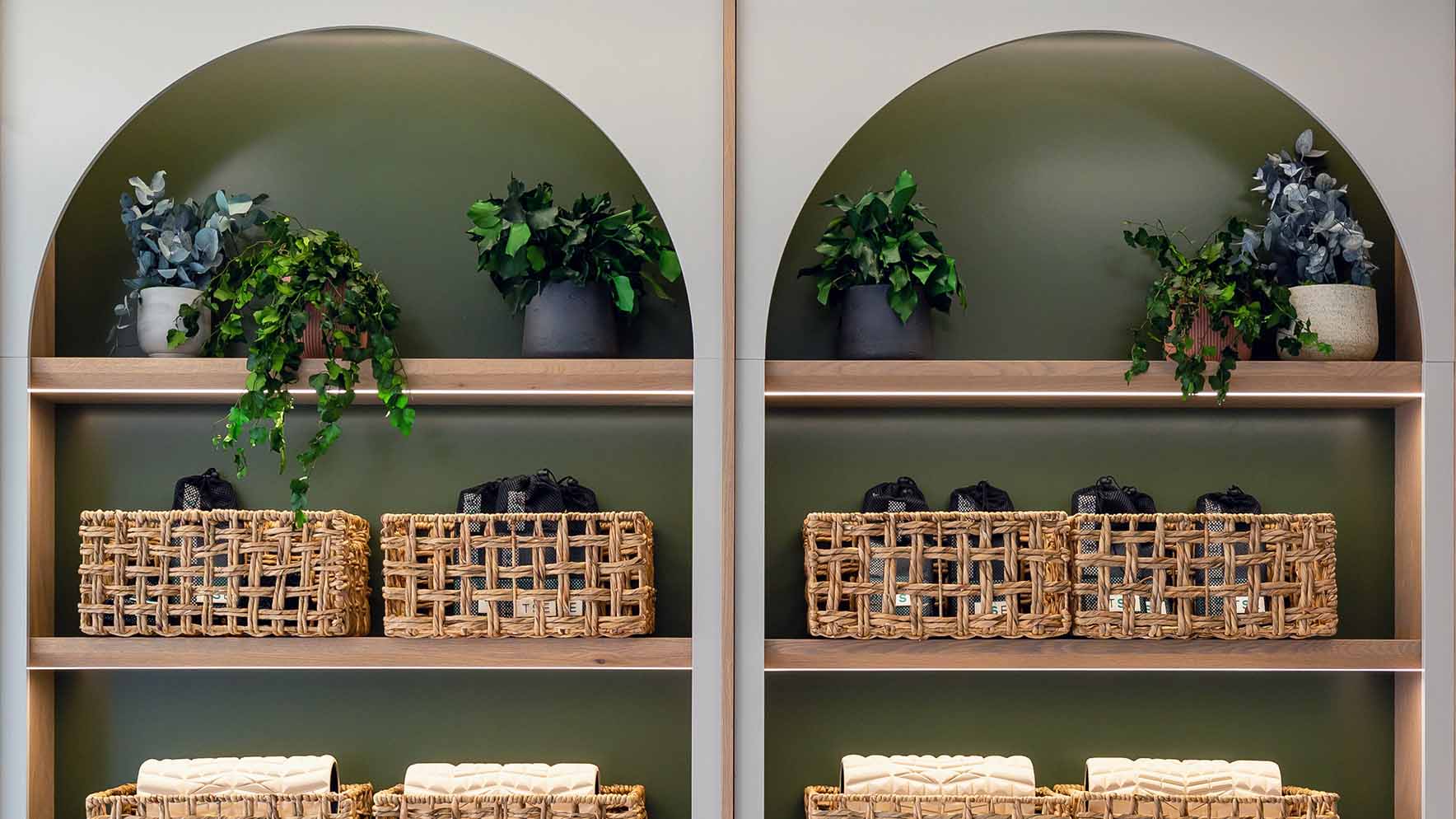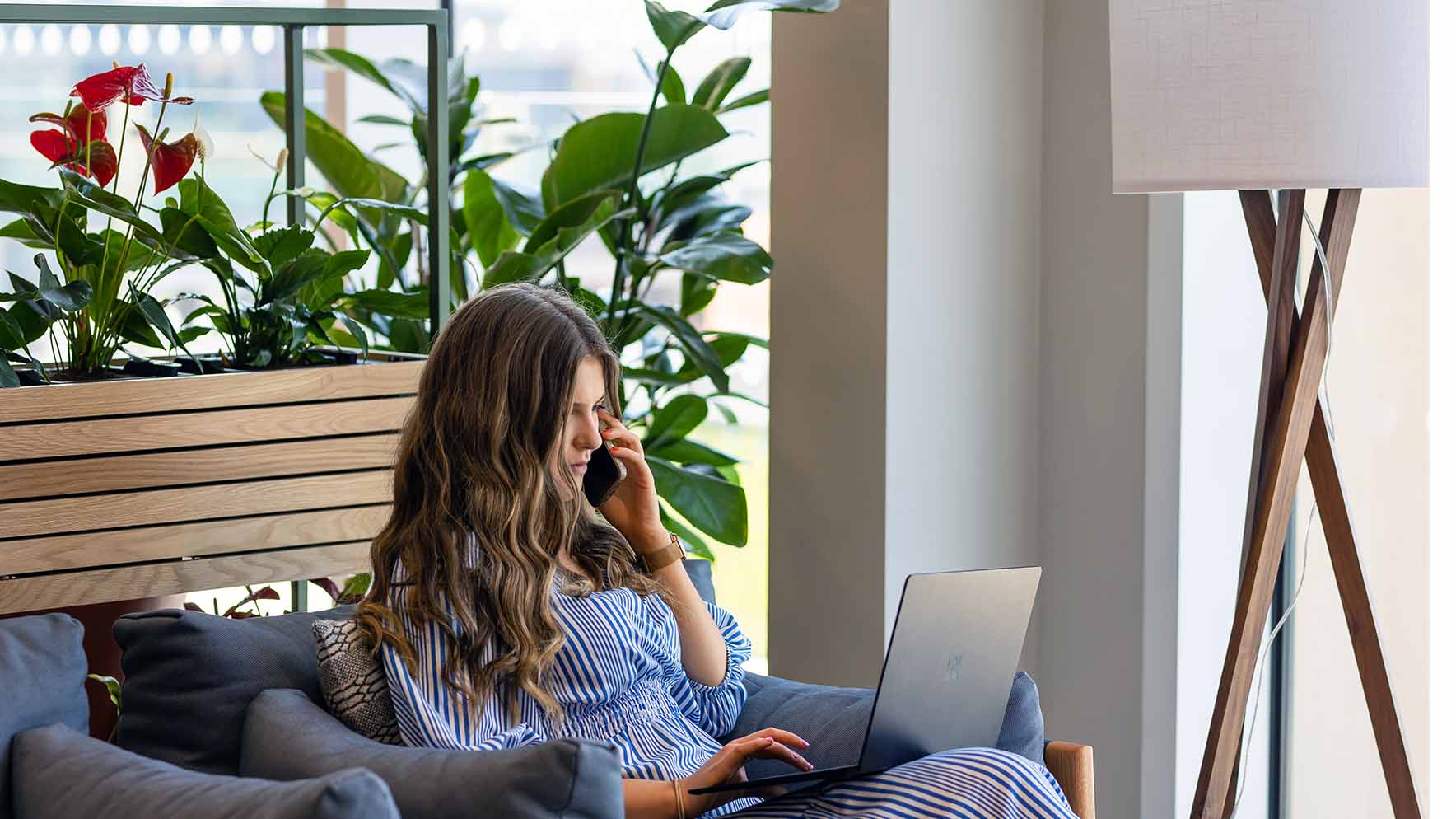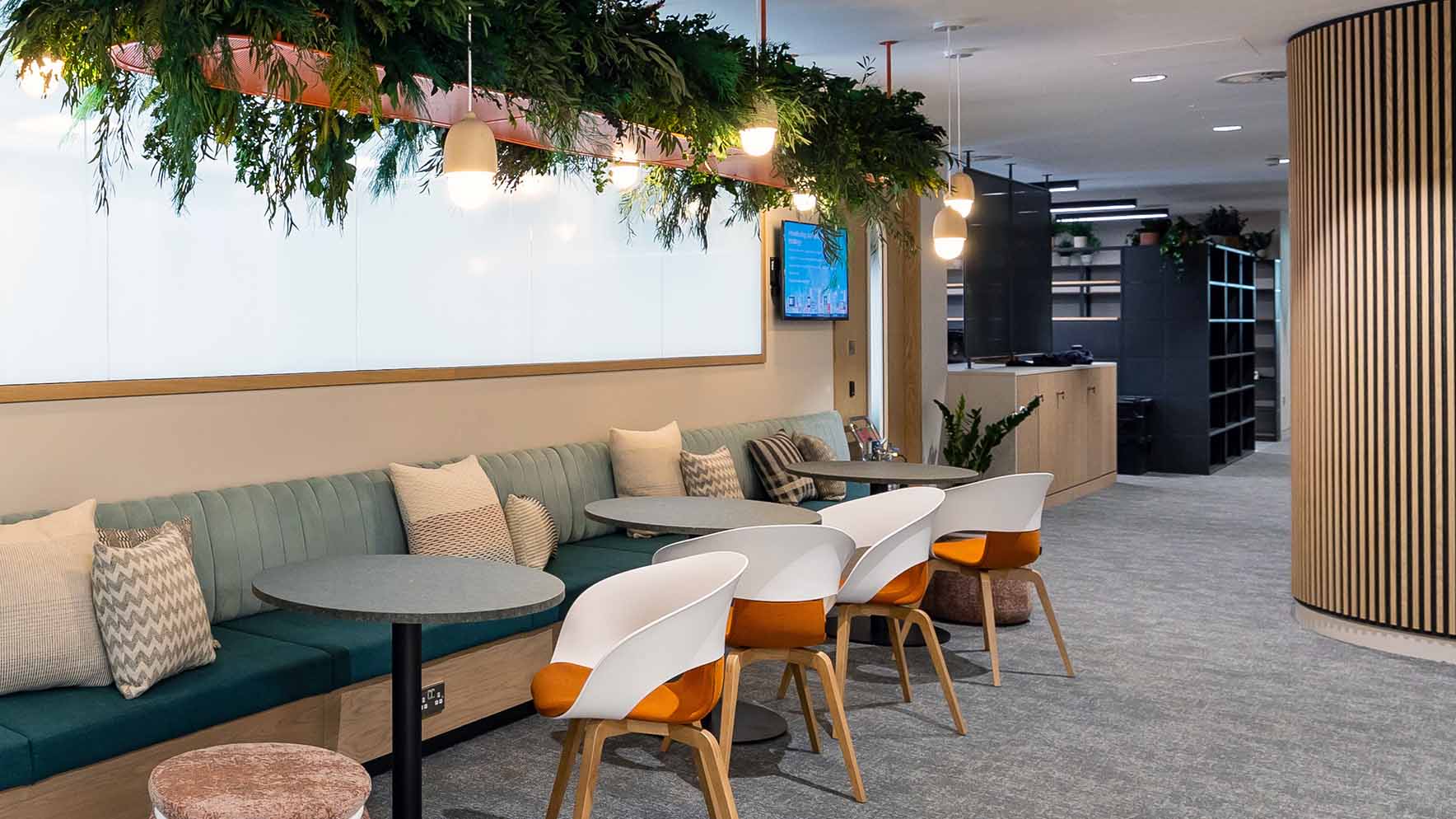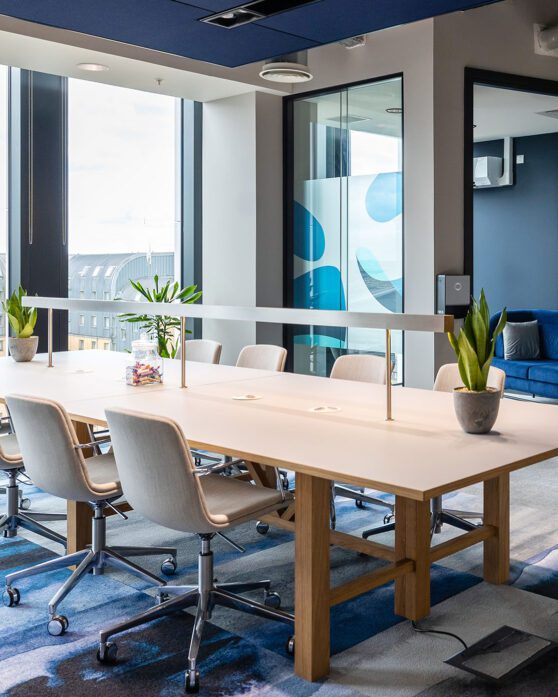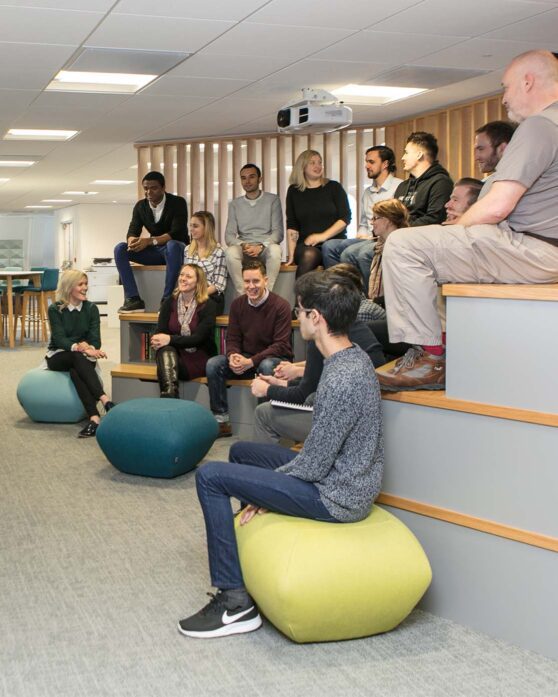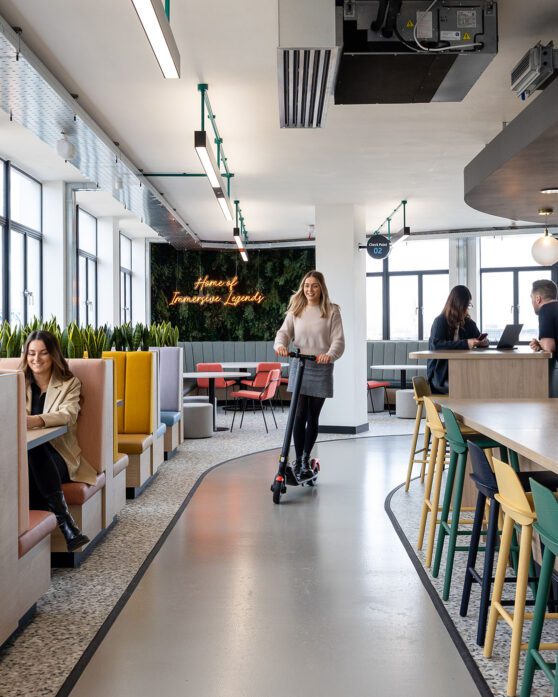Those ever-important finishing touches on one of the UK’s most sustainable office buildings.
Spanning 74,000 square feet across 5 floors, this was undoubtedly the largest and most complex project our furniture and styling teams have ever faced. To align with the impressive sustainability credentials of the overall design and fit-out, every single item was chosen based on a sustainable ethos, whether through:
- Sustainable packaging
- Sustainable materials
- Carbon offsetting
- Durability
- Independent & local makers
- Zero-waste
Driven by sustainability
Functional, sustainable, cleanable… and still gorgeous
The drive for sustainability continued throughout the furniture strategy. We looked for local and UK-based suppliers. Some specific items needed to be imported – with these we ensured their packaging and transportation credentials were environmentally-friendly, such as having them wrapped in reusable blankets and towels rather than cardboard. Many tabletops were unusually made of laminate to avoid scratching and prolong their usable life.
The aesthetic of the furniture had to be professional but functional, thought-through and comfortable. Our selections were designed to make people feel at ease, with soft edges, curves and neutral palettes. All fabrics had to be sustainable, as being able to clean them easily ensures longer lifespans.
We used a variety of recycled materials, most noticeable in standout items such as Planq stools, which are made from recycled white denim and military uniforms.
Flexibility was another key consideration. Areas such as the event space and café required lightweight stackable, moveable furniture and height adjustable tables. Fliptop tables added another level of reconfigurability, combining with plenty of power outlets and easy-to-move stools for agile movement.
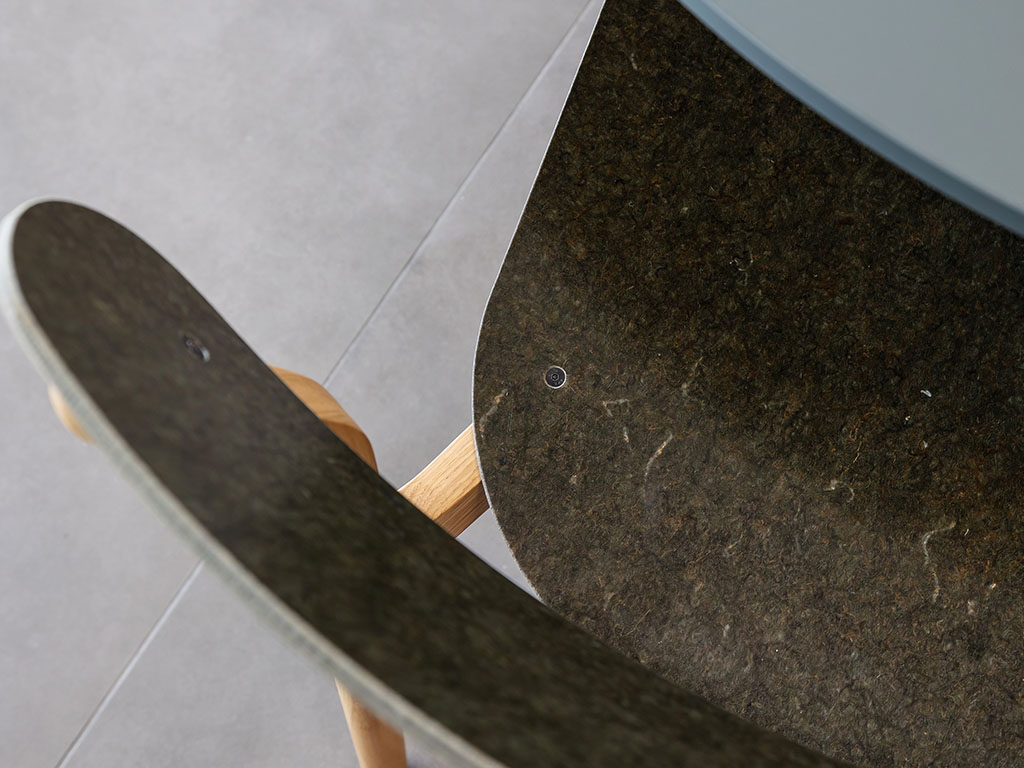
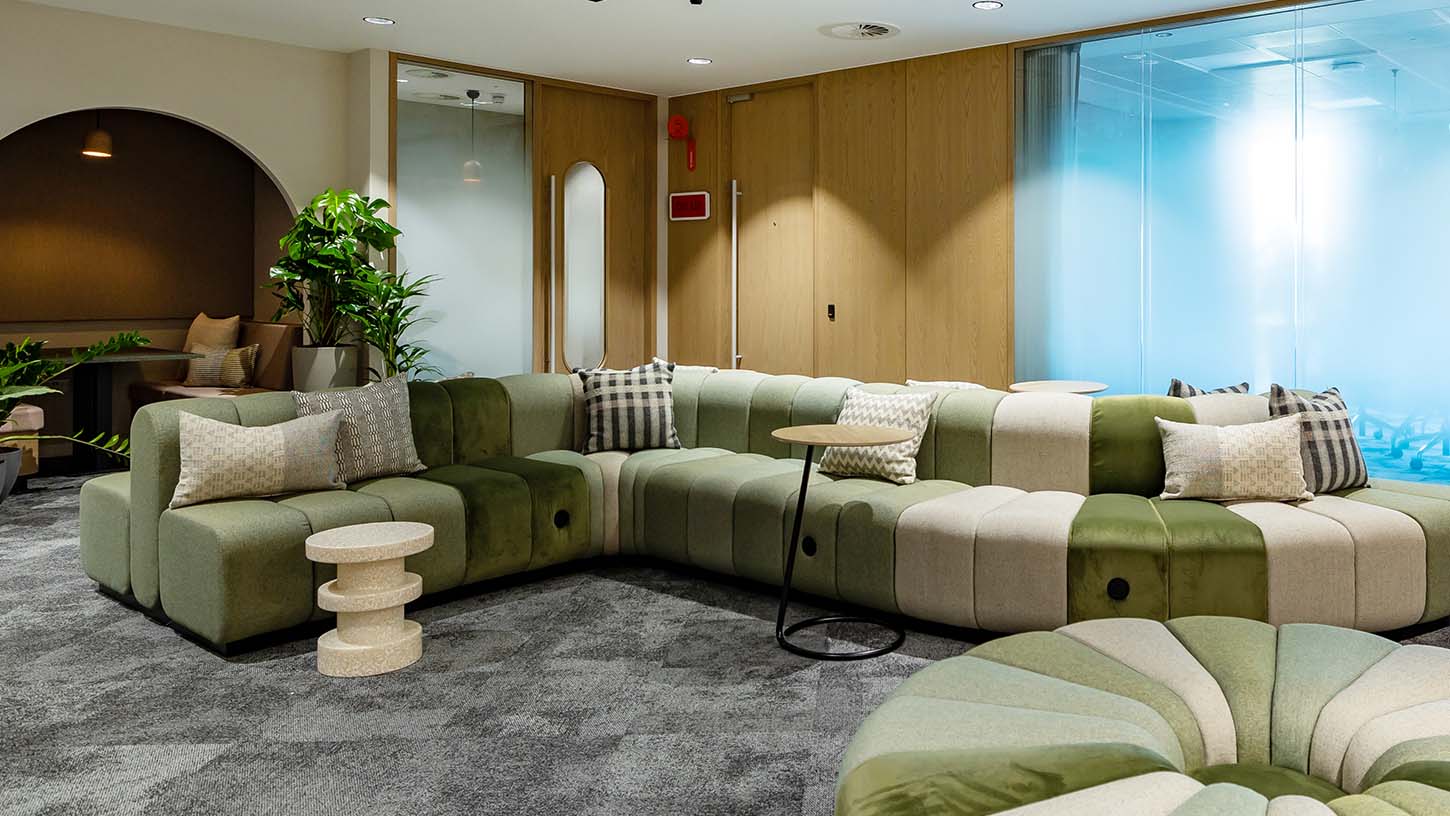
Sustainable styling
Inclusive at every level
Mood boards showing the look & feel were presented to the client, allowing them to express their preferences and share feedback. Since the client is in the professional services industry, some key requirements had to be followed. Everything had to be extremely functional, safety tested, inclusive, and capable of standing the test of time. One example of inclusive styling is the lack of diffusers in the space, which can contribute to those with aversions to certain smells.
Extensive research into sustainable styling was conducted. We deep-dived into our local supplier network, their processes and products, storing information in a matrix.
Our in-house Sustainability Coordinator then overlooked this document to identify the best options and draw attention to any potential greenwashing, before it was readdressed and finalised.
It’s amazing. I love all the plants and soft furnishings; you’ve done a fantastic job. I want to work in the office more now (despite my long commute).”
PAOsborne Clarke
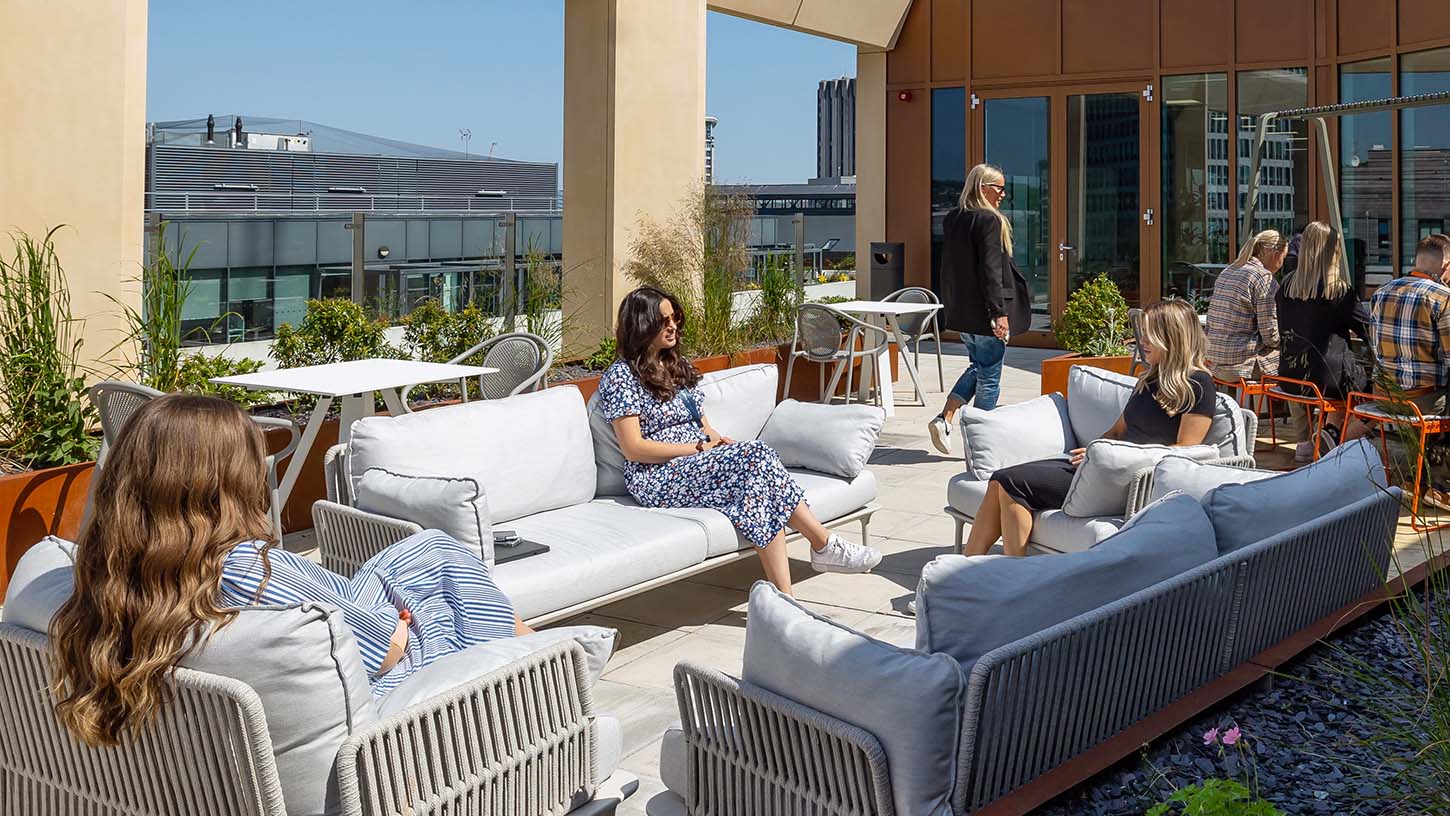
Natural materials
Our largest styling package yet
When planning the styling, it was important that there was a balance between consistency and not being repetitive between floors, so that they all had their own personalities and differentiation amongst spaces. This was also to encourage chance exploration throughout the whole space rather than working solely on one level. On the sixth floor alone, there were 10 client-facing meeting rooms, not including all the internal meeting rooms across the other floors. Differentiation in these spaces was shown through items such as coasters, vases and frames.
In keeping with the sustainable messaging, all styling items were either stoneware, ceramics, metal or natural materials. They’re also mostly recyclable or recycled.
Coordination was key for a project this size, with one of the main priorities being organisation on site. Installing the styling took a full week, with unpacking and grouping items being one of the longest tasks. Items were split by floors and rooms and labelled before being meticulously distributed as planned.
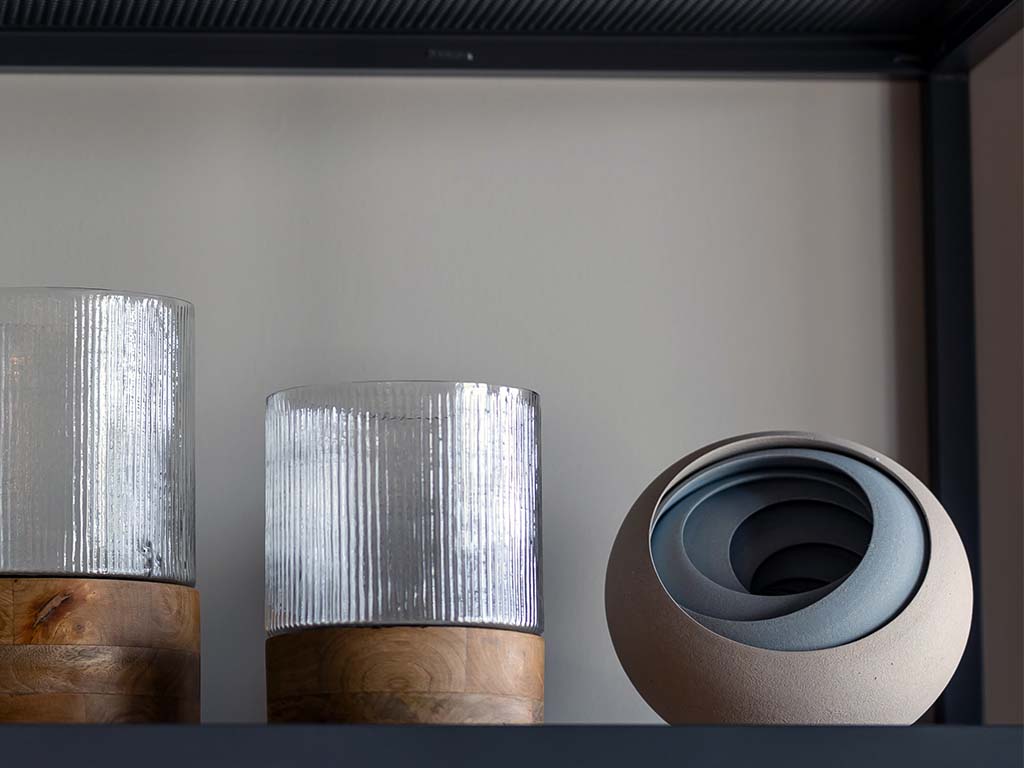
People, above all
Osborne Clarke’s commitment to inclusivity
Some truly sustainable, inspiring businesses were used in this project:
- Bristol Weaving Mill
- Bristol Weaving Mill uses British wool made in Bristol, less than 1000m away from Halo, in their small-scale micro-mill facility. We worked with them to create seven bespoke cushion designs and two bespoke throw designs in the same weave as the cushions, and in the same fabric to reduce waste. This resulted in over 200 cushions and a selection of throws throughout the space. The business has also pledged to the locally-based reforesting initiative Co-Forest who manages and maintains their mixed native Woodland.
- Nkuku
- Using eco-friendly materials, valuing and sustaining handmade traditional skills through fair and transparent relationships, Nkuku is committed to doing better. We sourced woven (sustainably grown) rattan baskets, wooden chopping boards, stone coasters and glass frames for this project.
- Oka
- Handmade and Hand-painted, these 100% ceramic side tables draw on years of experience and time-honoured techniques and support skilled workers. Each stool is uniquely beautiful and is part of Oka’s sustainability strategy.
- Ferm Living
- Boasting the strapline ‘we work for a better tomorrow’, Ferm Living are committed to responsible production. This project features their book ends, pencil holders and product organisers. The pencil holders are made from recycled casted aluminium and feature a rough, matte and blackened finish.
- Weaver Green
- Using recycled plastic bottles to make textiles that feel as soft as wool, Weaver Green then create eco-yarn which they hand-loom using traditional weaving techniques. Roughly 40% of the plastic bottles they recycle are retrieved from rivers and waterways which were destined for the ocean. These are featured as outdoor cushions at Osborne Clarke.
- Lampsy
- This FSC Certified walnut lamp comes equipped with an energy efficient bulb and was delivered with carbon neutral shipping. All of Lampsy’s buildings run on 100% renewable energy, helping to support wind & solar projects throughout the UK.
- Trouva
- Facilitating independent shopping for all, Trouva hosts some of the best independent boutiques under one virtual roof, encouraging users to shop small and reduce their impact on the planet. They also work to offset carbon with their carbon neutral shipping scheme.
- Tikamoon
- With 80% of their furniture being solid wood, created using traditional assembly methods and FSC certified, Tikamoon’s pieces are designed to last. Guaranteed to last five years, but expected to last even longer, investing in quality ensures that less waste is produced in the future. Seeking out recycled, plastic-free packaging and lowest-emission-per-product shipping, this business is committed to sustainability.
- Casall
- The serene yoga studio features foam rollers which contain 25% biobased materials including bamboo fibres and rice husk. Casall prioritises durability, waste reduction, and a ‘less is more’ approach to packaging. They have committed to reduce overproduction by 50% by 2025, employ a durability guarantee and have competitive goals regarding sustainably sourced materials.
What next?
There’s so much more to see
Osborne Clarke needed a people-focused and sustainable office to bring their 780 employees together in the heart of Bristol. We created a cutting-edge workspace that serves as a best-in-class example of how to design for both people and the planet.
An end-to-end solution
In addition to wellbeing consultancy, this project involved many of Interaction’s key services:
Full case study
The end result is the epitome of a destination office – one designed to delight existing Osborne Clarke employees and make the best talent in the market turn their heads.
Case Studies
If you liked that, you’ll love these
Discover how reevaluating their workplace strategy helped these businesses reach new heights
Time to revolutionise your workplace?
We’d love to hear your plans. Get in touch with Charlie to see how we can bring them to life
